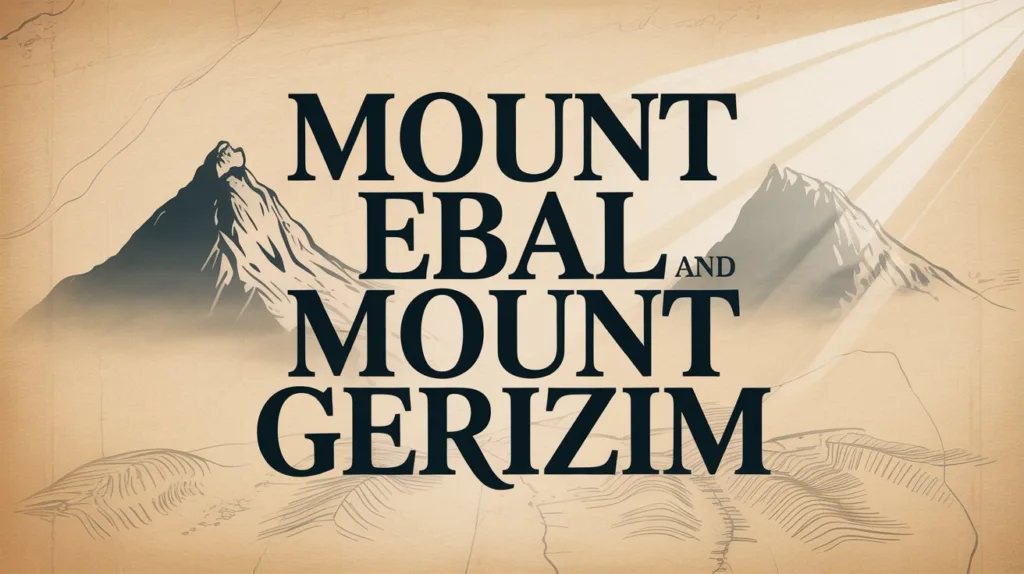Elisha, a prophet of God returns to Gilgal at a time of crisis.
“And Elisha returned to Gilgal, and there was a famine in the land. Now the sons of the prophets were sitting before him; and he said to his servant, ‘Put on the large pot, and boil stew for the sons of the prophets.’”
—2 Kings 4:38
Gilgal, once a place of covenant renewal under Joshua (Joshua 5:9), is now marked by hunger. But more than physical lack, it symbolizes the spiritual dryness of the nation. Famine was one of the judgments God promised for disobedience:
“When I have broken the supply of bread, ten women shall bake your bread in one oven, and they shall bring back your bread by weight, and you shall eat and not be satisfied.”
—Leviticus 26:26
This gathering of prophets around Elisha represents a remnant holding fast to truth during a time when many had turned to Baal and false worship. Yet even among them, danger was near.
A Dangerous Provision
In their attempt to survive, one of the young prophets ventures out into the field. In zeal or desperation, he gathers what he believes are edible herbs.
“So one went out into the field to gather herbs, and found a wild vine, and gathered from it a lapful of wild gourds, and came and sliced them into the pot of stew, though they did not know what they were.”
—2 Kings 4:39
The Hebrew word for “wild gourds” is paqqūʿōt, likely referring to colocynth, a plant that is bitter and can cause purging or death. This moment captures the image of good intentions without discernment. The man did not know what he was adding to the pot. It is a spiritual lesson. Even in ministry, we must beware of mixing foreign things into God’s provision.
“There is a way that seems right to a man, but its end is the way of death.”
—Proverbs 14:12
There was no malice in the act, but the result was still deadly.
“Then they served it to the men to eat. Now it happened, as they were eating the stew, that they cried out and said, ‘Man of God, there is death in the pot!’ And they could not eat it.”
—2 Kings 4:40
The Prophetic Solution
Elisha responds not with panic, but with authority.
“So he said, ‘Then bring some flour.’ And he put it into the pot, and said, ‘Serve it to the people, that they may eat.’ And there was nothing harmful in the pot.”
—2 Kings 4:41
There is no magic in the flour. It is symbolic. Just as in Exodus 15:25, when Moses threw wood into bitter waters and they were made sweet, the act points to divine intervention. Flour, used for bread, which sustains life, points to the Word of God and the Bread of Life.
“Man shall not live by bread alone; but man lives by every word that proceeds from the mouth of the Lord.”
—Deuteronomy 8:3
“I am the bread of life. He who comes to Me shall never hunger.”
—John 6:35
Elisha, a type of Christ in this moment, purifies what was poisoned. He doesn’t discard the pot or its contents. He transforms it. What man corrupted, God redeems.
Spiritual Implications
This account is more than a miracle story. It teaches that not all poison is obvious, and not all danger is external. Sometimes, spiritual poison enters subtly: through ignorance, compromise, or false teaching.
“A little leaven leavens the whole lump.”
—Galatians 5:9
“Beware lest anyone cheat you through philosophy and empty deceit, according to the tradition of men, according to the basic principles of the world, and not according to Christ.”
—Colossians 2:8
But the solution is never in fear or removal. It is in correction by truth, by the Bread of Life Himself. Elisha did not need a new pot, just a divine word.
My Final Thoughts
The pot wasn’t thrown out. The prophets weren’t punished. The food wasn’t wasted. God stepped in and redeemed the situation through a simple act of faith. That’s what He does for us. When death seeps into the pot… AKA into our homes, churches, or hearts, He doesn’t destroy what was once good. He purifies it.
Let this remind you: be cautious what you gather. Not all vines bear life-giving fruit. And when something deadly slips in, don’t despair. Call on Jesus. He can take what was once poisoned and make it whole again.





 Get the book that teaches you how to evangelize and disarm doctrines from every single major cult group today.
Get the book that teaches you how to evangelize and disarm doctrines from every single major cult group today.